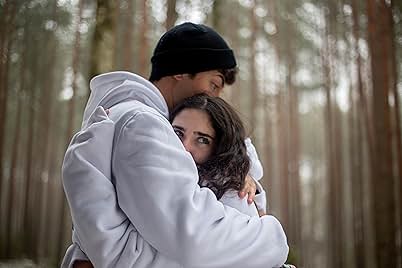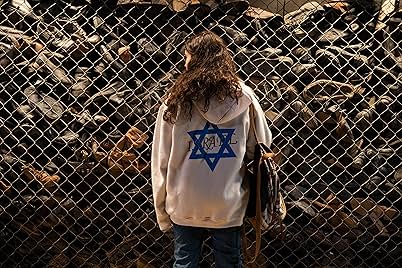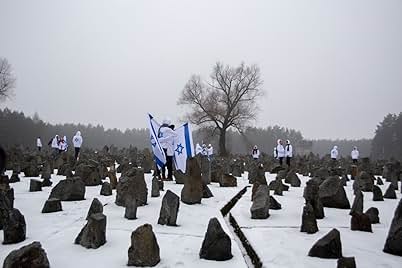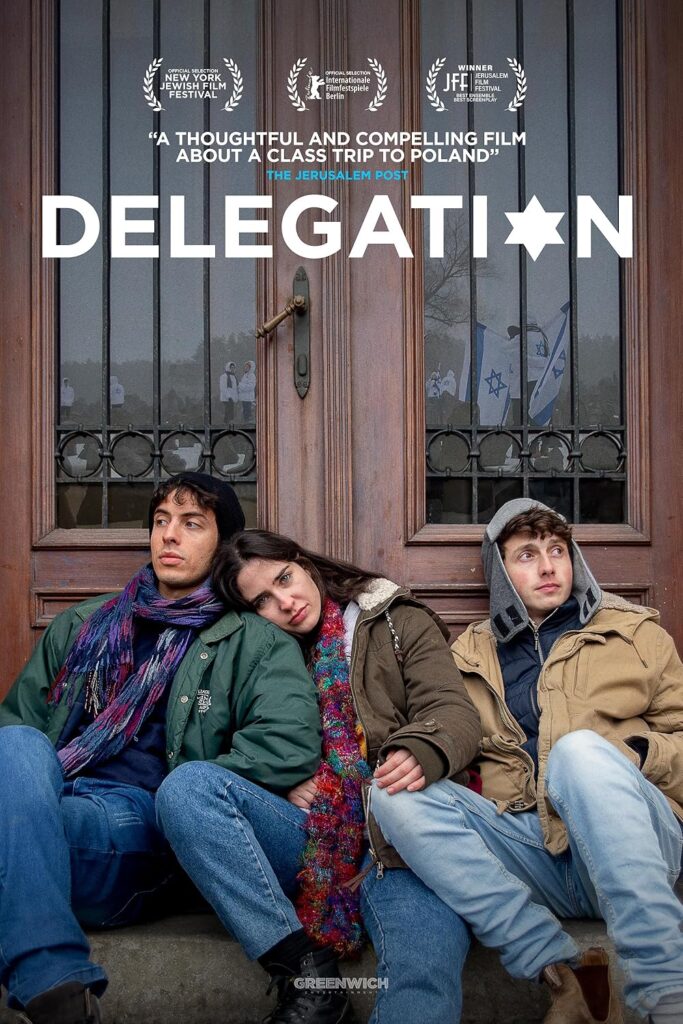The Delegation reveals why this 2025 digital release delivers genuine emotional depth and powerful coming-of-age storytelling. Asaf Saban’s focused direction transforms familiar educational trip territory into something genuinely moving and profoundly human.
What happens when you combine the weight of historical trauma with the vulnerability of teenage friendship on the brink of adulthood? You get dramatic perfection. Delegation (2023), directed by Asaf Saban, stands as one of the most compelling coming-of-age dramas in recent international cinema. This intense film follows three Israeli high school friends on their class trip to Holocaust memorial sites in Poland, their final journey together before military service. While the movie operates on familiar educational travel territory, it succeeds because it never exploits its premise—every moment of discovery and character development is handled with complete emotional authenticity.

Synopsis
Three Israeli high school students—shy Frisch, artistic Nitzan, and popular Ido—embark on their class delegation trip to visit Holocaust sites across Poland. This educational journey represents their last time together as carefree teenagers before they must confront the reality of mandatory military service and adult responsibilities. Against the backdrop of concentration camps and memorial sites, each friend grapples with personal insecurities, romantic feelings, and the weight of their cultural identity.
As they move through the cold Polish landscape visiting places of unimaginable tragedy, the trio must navigate not only the emotional impact of their historical education but also their own evolving friendships and individual anxieties about the future. The film follows their transformation from typical teenagers concerned with social dynamics to young adults beginning to understand their place in the larger story of Jewish history and Israeli society.

Plot & Themes
Delegation operates on a devastatingly complex premise: sometimes the most profound personal growth comes from confronting the darkest chapters of our collective past while facing uncertain futures. The Holocaust memorial sites serve as both educational setting and metaphor for exploring deeper questions about identity, responsibility, and the courage to grow up when everything feels overwhelming.
The film’s genius lies in its careful balance between historical education and teenage authenticity. When the friends face their own fears and insecurities while processing the magnitude of Holocaust history, the movie never treats their personal struggles as trivial compared to historical tragedy. These moments work because Saban understands that true emotional resonance comes from connecting universal human experiences across time and circumstances.
Thematically, the movie explores how historical memory shapes personal identity and how friendship can provide strength during times of overwhelming responsibility. The characters’ journey isn’t just about learning history—it’s about discovering how the past informs their understanding of who they must become as adults.

Cinematography & Visuals
The cinematography captures the stark beauty of Polish winter landscapes with visual techniques that serve both the historical and personal elements perfectly. The visual style emphasizes the contrast between the teenagers’ contemporary concerns and the timeless gravity of memorial sites, using natural lighting and handheld camera work to create intimate connections between past and present.
The film excels in building emotional weight through environmental storytelling. The sequences showing the friends navigating memorial sites while processing both historical trauma and personal anxieties demonstrate excellent use of authentic locations. The camera work holds on meaningful moments of realization and connection just long enough to create genuine emotional investment.
Historical details reward careful viewing. During memorial sequences, attentive viewers will notice how the characters’ growing understanding of their heritage is reflected in their changing interactions with each other and their environment.
Acting & Characters
Yoav Bavly delivers a compelling performance as one of the central friends, anchoring the ensemble with his portrayal of a teenager finding his voice amid overwhelming circumstances. His character arc from uncertain youth to someone beginning to understand his responsibilities feels authentic and earned rather than forced.
Naomi Harari provides excellent support as another key member of the group, bringing both vulnerability and strength to her role. Her chemistry with the ensemble creates believable teenage dynamics that ground the historical elements in genuine human relationships.
Leib Levin rounds out the core trio with a performance that balances adolescent concerns with growing maturity. His scenes during the most emotionally intense moments demonstrate genuine growth while maintaining character consistency.
The supporting cast, including Etai Avital and the ensemble, brings authenticity without falling into stereotype, creating believable Israeli teenagers navigating this transformative experience.
Direction & Screenplay
Asaf Saban’s direction maintains perfect emotional balance throughout the film’s runtime. Coming from his experience with character-driven drama, Saban understood that coming-of-age films require careful pacing that builds understanding without sacrificing authenticity. Every revelation and emotional sequence is given space to resonate naturally.
The screenplay layers meaning at multiple levels:
- Character development that explores teenage identity authentically
- Historical elements that feel respectful rather than exploitative
- Friendship dynamics that build naturally from shared experience
- Cultural beats that never feel heavy-handed or preachy
The script’s structure follows coming-of-age conventions while subverting them through genuine historical weight. This creates familiarity that makes the unexpected moments of growth and understanding land with greater impact.
Sound & Music
The film’s score perfectly balances contemporary teenage energy with historical solemnity to create an audio landscape that mirrors the characters’ psychological journey. The music enhances rather than overwhelms the natural drama of both personal discovery and historical education.
Sound design plays a crucial role in building emotional connection. The way contemporary voices echo in historical spaces, and how silence becomes meaningful during moments of remembrance, creates an immersive experience that places viewers directly into the characters’ transformative journey.
The use of silence deserves particular recognition. Key moments of historical reflection and personal realization are allowed to breathe without musical manipulation, trusting audiences to connect with the characters’ emotional reality through performance and authentic location atmosphere alone.
Conclusion & Verdict
Delegation succeeds because it treats its historical premise with intelligence and respect for both Holocaust memory and teenage authenticity. Every element—from performance to cinematography to sound design—works in service of both education and character development without sacrificing either.
Strengths:
- Exceptional ensemble cast that creates believable teenage friendship under transformative circumstances
- Authentic historical elements that feel respectful and meaningful
- Excellent pacing that builds understanding while maintaining character focus
- Thoughtful exploration of identity and responsibility through experience rather than exposition
Minor Weaknesses:
- Some educational elements feel slightly predictable for the genre
- Occasional pacing issues during transition sequences slow momentum briefly
This film remains essential viewing for drama fans and anyone who appreciates character-driven coming-of-age storytelling. Delegation works for audiences who enjoyed Call Me by Your Name, The Way He Looks, or Son of Saul.
Rating: 8.5/10
Director: Asaf Saban
MPAA Rating: Not Rated (suitable for mature teens and adults for thematic material)
Starring: Yoav Bavly, Naomi Harari, Leib Levin, Etai Avital
For more international drama reviews, check out our analysis of other coming-of-age films. You can also explore the film’s production details at the Internet Movie Database.


